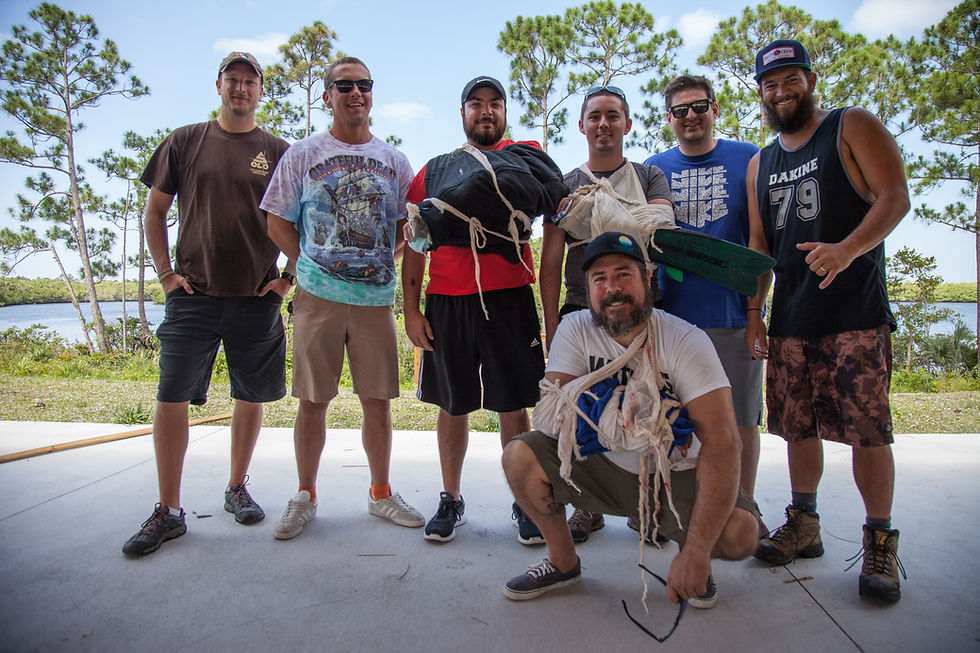Clearing the Way for Healing
- Jun 24, 2019
- 3 min read
Updated: Dec 6, 2022

There are many paths to the same destination. We encourage our men to travel the one that feels right for them, using their sense of passion and purpose as a guide. We’ve explored what this looks like previously, with artistic expression or outdoor adventure, and another route is through spirituality.
Our paddling trips down the Peace River have something for everyone. The hours of paddling offer a true physical challenge and the scenery allows for a lot of quiet introspection and inspiration. On one such excursion one of our patients, a young Ojibwe man, shared one of his traditions from home with his brothers in recovery.
In North American native culture, the practice of smudging is used to purify a person, a place, or their possessions.
Here on the banks of the Peace River, a bundle of white sage was set alight in an abalone bowl. Traditionally, this ritual used to drive away negative energy or ward off illness and restore peace and balance, by allowing the smoke to bathe the person, place or thing meant to be cleansed.
These were a very peaceful few moments for the men who chose to partake. The smudging is an opportunity to release negative thoughts, calm the frenetic energy in your body, let go of nagging concerns, and focus on the present moment.
An unfocused and scattered mind is tense and reactive, often clinging to worries about the past or fears about the future. In recovery, men are often haunted by these kinds of thoughts. With a bit of space and time to reflect, they begin to see how deeply they have hurt themselves and the people they care about the most. They also harbor doubts about how they will be able to return to their lives after treatment.
In these moments when men anchor themselves in the present, guilt, shame, fear and worry fall away. Some people call this ‘mindfulness’ when we pay attention to our thoughts, feelings, and experiences as they exist in the present moment only. There are so many ways of accessing mindfulness—like quiet reflection, but also through activities like painting, rock-walking, and the smudging one of our patients performed.

In spiritual activities, like artistic or adventurous ones, how much a man gains from an experience depends on his ability to be vulnerable.
Some men are able to surrender themselves to an experience like this, others are reluctant and tripped up by their own self-consciousness—particularly men who are newer to recovery.
There exists among our patients, at any given time, a core group of men who lead the others in their willingness to be vulnerable, honest, and accountable, and who the rest of men take their cue from. Concepts like “vulnerability” and “empathy” are learned through doing, as men learn to trust and accept themselves and each other.
The chance to pause, reflect, and refresh your intent or purpose is one that these men didn’t have before beginning their recovery; they were stuck in old cycles of destruction and dysfunctional behaviors.
Working with these men everyday for weeks and months at a time, we get the privilege of watching them grow and change. When they first arrive, patients are often withdrawn and defensive, unsure of their place in this new setting where they don’t have access to their most trusted coping mechanisms. It doesn’t take long to start forming valuable relationships with the other men in our program. In short order, men begin to learn trust, empathy, vulnerability, and compassion, as they reconnect with themselves and connect with the other men of the group. These connections and the tools they gain by learning from one another will carry them forward into a meaningful life of remission from addiction. Call us to find out if Voyage is right for you or someone you care about (772) 245-8345.



